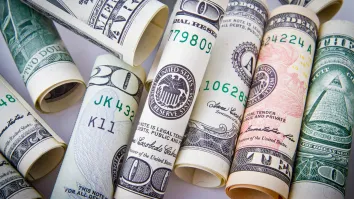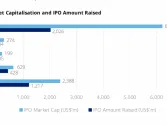
Chinese funds eye stakes in Taiwanese businesses
Chinese funds are eyeing stakes in Taiwan’s hotels, restaurants and healthcare establishments.
The booming cross-strait tourism presents massive business opportunities for China.
Taiwan and China will step up exchanges this year after political uncertainty settles in China, which is positive for cross-strait tourism and investment activity, Jerry Guo, head of investment banking at UBS Securities in Taipei, said at an annual media briefing.
Chinese funds are interested in strategic partnerships with Taiwanese hotels, restaurants, and healthcare providers, and some may make their moves this year, Guo said.
The acquisition of a 20 percent stake in Taiwan’s Vigor Kobo in November last year by China’s Fosun Group was the first business alliance in the food sector, Guo said.
The strategic cooperation allows Vigor Kobo access to the massive Chinese food market and allows the Chinese investor to capitalize on the local baker’s rapid expansion, as its pineapple pastries are considered a must-have souvenir among Chinese tourists, Guo said.
Quite a few Taiwanese restaurants are attractive investment targets and so are hotels near popular tourist resorts, Guo said, refusing to name any.
“Partnerships with Chinese investors would guarantee more Chinese guests, which would boost revenues and earnings for local hotel and restaurant operators,” he said.
Local health and skincare establishments also make strong investment targets because they offer better quality services than their Chinese counterparts, Guo said.
UBS Taiwan, which commands the leadership position in terms of wealth management for high net worth clients in the nation, expects the TAIEX to peak in the second quarter at about 8,200, from 7,695.99 at the close of trading yesterday, said William Dong, head of equities and research.
The main index is likely to trade in a tight range until the end of the Lunar New Year holidays in the middle of next month, he said.
The main index may pick up after that, thanks to an improved outlook for the economy at home and abroad, Dong said, adding that Taiwan’s GDP is likely to grow 3.7 percent this year, from an estimated 1 percent last year.
Lingering uncertainty over the pace of recovery and pricing competition among major technology firms may cast a shadow over the local bourse in the third quarter, he said.
Frank Suen, head of the firm’s foreign exchange division, said a currency war is in place after the US, Europe and Japan embarked on aggressive money-printing operations to stimulate growth.
Central banks in Asia, including Taiwan’s, are watching closely, but may not adopt drastic response measures given the improved economic fundamentals, Suen said.
For more.














